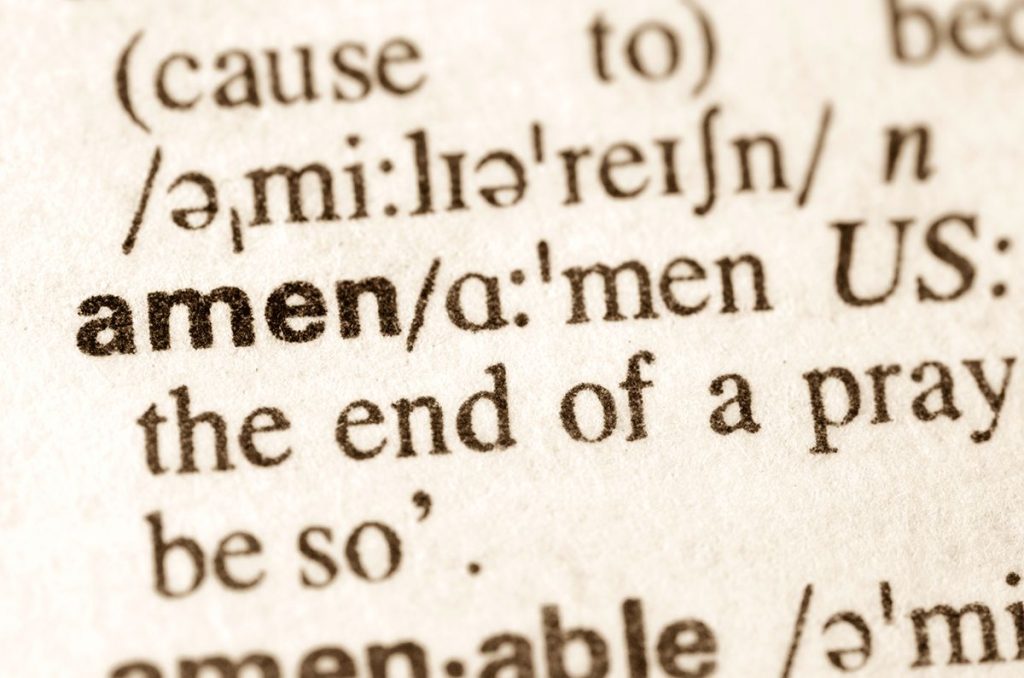We have been reflecting on the words of the Lord’s Prayer during these weeks of Easter.
Now, as we prepare for Pentecost and the coming of the Holy Spirit, we remember that the Spirit is given to us so that we can call God, “Abba! Father,” as Jesus taught us.
And the prayer he teaches us, our prayer as God’s children, concludes with three petitions for God’s mercy and protection.
These petitions reflect the “realism” of our faith and our Christian vision of the world. We pray forgive us, lead us notand deliver us. There is a sense that we are praying for all of humanity.
“Forgive us our trespasses as we forgive those who trespass against us” recognizes that we live in a world where we hurt one another, where we feel guilty and in need of healing.
The laws of God, the teachings of the Church — these are not abstract principles or arbitrary rules. They are the terms of a relationship that is living, a relationship of love.
We are more than “creatures” to God. We are his sons and daughters. His teachings and laws form the path that will take us forward to the happiness and joy and love that he wants for his children.
When we “trespass” against God, it is personal. We are pushing God away, rejecting the friendship he created us for. The same is true too when we trespass against others. We are denying that we are meant to live as brothers and sisters, children of the same loving Father.
Jesus called us to love God with all our heart and our neighbors as ourselves. We cannot say we love God if we do not love our brothers and sisters. We cannot expect his forgiveness if we aren’t willing to grant forgiveness to others.
This is the constant teaching of Jesus.
Forgiveness is the fruit of love. God forgives us because he loves us. So we pray that we might open our hearts in mercy to others, so that our hearts will be open to the mercy of God.
We are praying to have the same heart as Jesus, who in his dying words from the cross, prayed for his enemies: “Father, forgive them.”
When we pray for forgiveness from God, we are asking for the courage to really feel sorry, without justifying ourselves or trying to explain away our actions. When we pray to forgive others, we pray to be merciful as our Father is merciful.
We should forgive others from the heart without holding anything back. We should forgive with the joy that comes from knowing that we have been forgiven.
The prayer of Jesus concludes with two final appeals for God’s mercy — “Lead us not into temptation” and “Deliver us from evil.”
Of course, God is all-merciful and loving. And, as St. James writes, God does not tempt us.
We are tempted by the world and by our weakness, because we are human. “Lead us not” reminds us that we aren’t self-sufficient, we need God to make it through this world.
Jesus was tested in the desert and so we know that our faith will be tried and tested in the struggles of everyday life. We ask God to be patient with us, to keep us close to him.
We pray also to be delivered from the evil in the world. We know that evil is real. We see the evidence every day. But we also know that God’s love is stronger. So we pray that Jesus will come to be with us, that he will walk with us through the dark valleys of this life.
The Lord’s Prayer, as we have been saying, is a prayer for “realists.” The reality is that we are God’s beloved children and that he cares for each of us in his loving Providence.
So we pray again to surrender ourselves to God’s will and his loving plan for our lives. We pray with confidence because we know that God’s will is our holiness and salvation. We know that all things work for the good — if we love God and live according to his purposes.
The last word of our prayer is always “Amen,” a word that means: “Let it be so.”
“Amen” turns our prayer into action. So this week, let’s pray together for the coming of the Holy Spirit. And let’s pray to really live the Lord’s Prayer — turning to our Father for food, forgiveness and deliverance; seeking his will for our lives, that his Kingdom may come on earth.
And, in this month of Mary, let’s continue to turn to our Blessed Mother, who said “let it be so,” and gave us Jesus.
You can follow Archbishop Gomez daily via Facebook, Twitter and Instagram.

